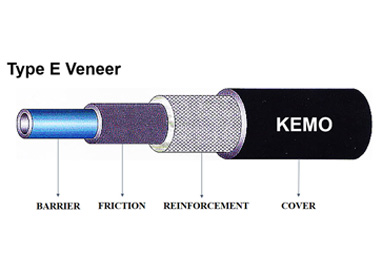Optimizing Fuel Injection Systems for Enhanced Performance and Efficiency in Vehicles
Nov . 17, 2024 11:24 Back to list
Optimizing Fuel Injection Systems for Enhanced Performance and Efficiency in Vehicles
Understanding Fuel Injection and Fuel Lines in Modern Vehicles
Fuel injection technology has revolutionized the way engines operate, providing more efficiency and better performance than traditional carburetor systems. At the heart of this system lies the fuel line, which plays a critical role in delivering fuel from the tank to the engine. In this article, we will explore the function of fuel lines, the significance of fuel injection, and how these components work together to enhance vehicle performance.
Understanding Fuel Injection and Fuel Lines in Modern Vehicles
Fuel injection systems have largely replaced carburetors in modern vehicles because they provide more precise control over fuel delivery. In a fuel injection system, fuel is delivered directly into the combustion chamber or the intake manifold in a fine mist, allowing for better atomization and mixing with air. This precision leads to a more efficient combustion process, resulting in improved power output and reduced emissions.
fuel injection fuel line

One of the key advantages of fuel injection over carburetion is the ability to adapt to different driving conditions and demands. Advanced fuel injection systems can adjust the amount of fuel injected based on various parameters, such as engine temperature, load, and throttle position. This adaptability not only maximizes performance but also enhances fuel economy, making vehicles more environmentally friendly.
Fuel lines must be engineered to meet the demanding conditions of a fuel injection system. They must withstand high pressures, often exceeding 50 psi, and resist degradation from exposure to fuels containing alcohol or other corrosive additives. Additionally, geometrical design considerations, such as bends and attachments, must be factored in to minimize pressure loss and ensure optimal fuel flow.
Regular maintenance of the fuel line is essential for the longevity and efficiency of the fuel injection system. Drivers should be aware of signs indicating potential issues, such as fuel odors, irregular engine performance, or visible leaks. Addressing these problems early can prevent costly repairs and ensure that the vehicle operates at its best.
In conclusion, the fuel line is a crucial component of the fuel injection system, playing a significant role in the overall performance of modern vehicles. As automotive technology continues to evolve, understanding the intricacies of these systems becomes increasingly important for drivers. By combining advanced engineering with effective maintenance practices, vehicle owners can enjoy the benefits of improved fuel efficiency, reduced emissions, and a more powerful driving experience.
